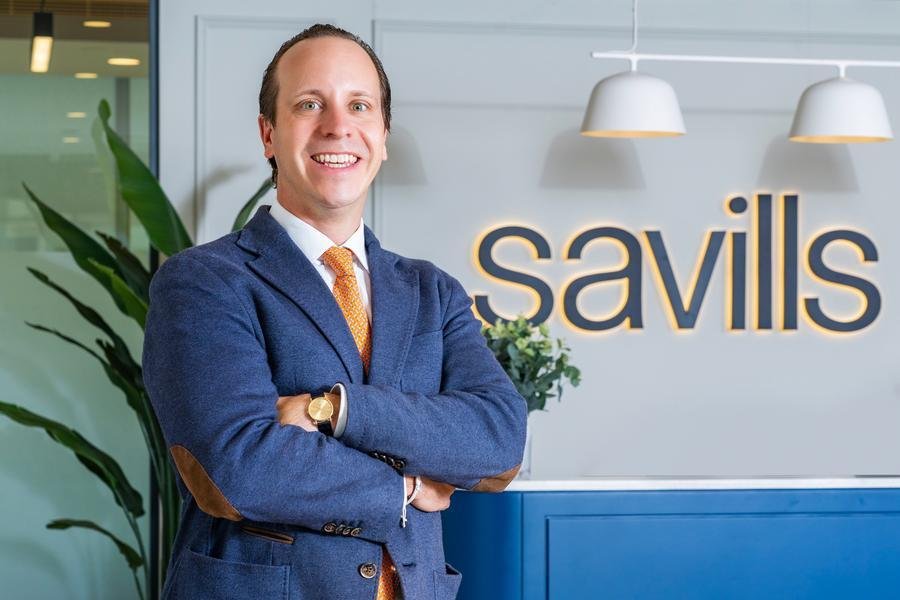Dubai’s commercial real estate market maintained strong momentum in 2024, with significant growth recorded across both the office and industrial sectors, as highlighted in Savills latest market reports. The city’s appeal as a global business hub, coupled with infrastructure advancements and sustained demand, continues to drive rental growth and investment activity.
Dubai’s office market remained vibrant in 2024, with demand outpacing supply for premium Grade A office spaces. Key business districts such as DIFC, Business Bay, and Downtown reported near-full occupancy, with DIFC reaching 96% by year-end. Emerging areas like Dubai South and Expo City gained traction due to their affordability, reduced traffic congestion, and availability of space.
The city recorded a 9% year-on-year increase in rental transaction volumes, supported by a 4% rise in new company registrations, with over 51,000 businesses joining the Dubai Chamber of Commerce. Financial services and the technology & media sectors dominated leasing activity, accounting for 52% of transactions. Increasingly, tenants are prioritising ESG-compliant, green office spaces and opting for longer leases with rental escalations to secure high-quality spaces amid tight supply conditions.
“Dubai’s office market reflects the city’s appeal to global enterprises, underpinned by its strategic location, world-class infrastructure, and business-friendly policies. With Grade A office spaces witnessing record-low rates in prime districts such as DIFC, and upcoming supply in emerging areas like Dubai South and Expo City, the market is adapting to meet sustained demand. The strong leasing activity driven by the Financial Services and Technology sectors underscores Dubai’s ability to cater to the requirements of international businesses while supporting sustainable development initiatives.,” said Toby Hall, Head of Commercial Agency, Savills Middle East.
Dubai’s industrial and logistics sector experienced unprecedented growth in 2024, driven by e-commerce expansion, population growth, and robust activity in the FMCG and oil & gas sectors. The year saw historically low vacancy rates and notable rental growth across key micro-markets.
Grade A rents surged by an average of 37.5% year-on-year in DIP, 28.6% in Dubai Industrial City and Jebel Ali Industrial, and 22.2% in Dubai South. Both DAFZA and DuBiotech crossed AED 120 per sq. ft. per year, reflecting strong demand for temperature-controlled facilities and high-bay warehouses. Investment activity also rose, with major players like Aldar Properties, Arcapita and Brookfield Asset Management active in the market.
“Landlords are dictating terms, with longer lease durations becoming the norm as tenants compete for limited space. The growth in industrial and logistics demand highlights Dubai’s strategic role as a hub for e-commerce and trade in the region. Infrastructure developments, such as the Al Maktoum Airport expansion, are further strengthening connectivity, attracting significant investor interest, and ensuring Dubai remains a key player in the global logistics market,” said Michael Fenton, Director Industrial & Logistics, Savills Middle East.
Looking Ahead to 2025 Both the office and industrial markets are poised for further growth in 2025. Approximately 1 million sq. ft. of Grade A office space and 920,000 sq. ft. of Grade A industrial facilities are expected to enter the market, alleviating supply constraints in the short term. Developments such as Wasl Tower, DIFC Square, and new industrial spaces in key areas will broaden tenant options and cater to evolving business needs.
However, high demand is likely to maintain upward pressure on rents, particularly in prime locations. Tenants and landlords alike are expected to favour longer-term leases, fostering greater stability and predictability in Dubai’s commercial real estate sector.
For further insights and detailed analysis, download the full Dubai Office Market and Dubai Industrial Market reports from here.





